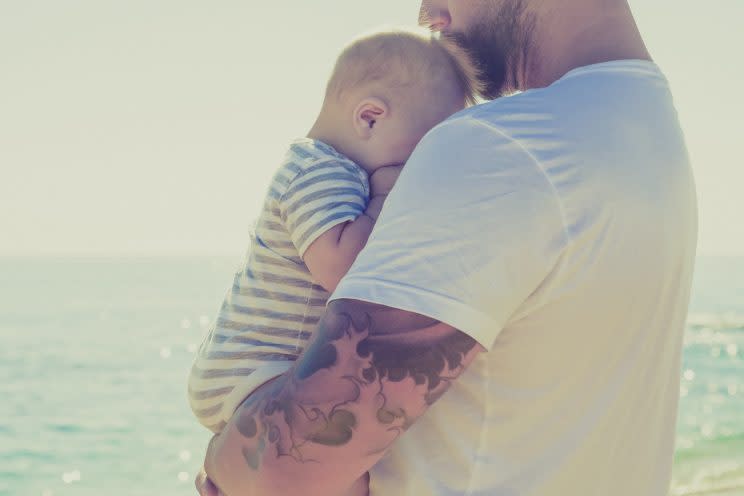Turns out men also deal with postpartum depression

Celebrities like Drew Barrymore and Hayden Panettiere have helped normalize the stigmas around postpartum depression among new moms, but what about the dads? According to a new report out of the University of Massachusetts’ Journal of Parent and Family Mental Health, moms aren’t the only ones who struggle with the arrival of a new baby.
“While postpartum depression (PPD) has historically been associated primarily with mothers, recently there has been increased awareness of the experience of fathers and strategies to address postpartum depression in men,” the report states.
ALSO SEE: ‘I plan to keep laughing with them for as long as I live’ says dad to woman who called him childish
Postpartum depression refers to the moderate to severe feelings of depression, which can occur immediately or up to one year after the birth of a child. Sometimes referred to as the “baby blues,” symptoms can include feeling sad, worthless, hopeless, guilty, or anxious.
“A mother or father with postpartum depression may not enjoy the baby and have frequent thoughts that they’re a bad parent,” states the Canadian Mental Health Association. “They may also have scary thoughts around harming themselves or their baby.”
While most of the studies around PPD have focused around women, this report found that there is a high likelihood of PPD occurring in fathers if mothers are also experiencing PPD.
“While the relationship between maternal and paternal PPD is still being researched, studies report that male partners of depressed women generally feel less supported, and experience more fear, confusion, frustration, anger, and uncertainty,” a 2008 study by Schumacher and White found.
ALSO SEE: This dad’s adorable daycare wardrobe mishap is going viral
In the same way that becoming a new mother involves a lack of sleep, fathers too experience this along with a greater need or demand to be a provider. These new responsibilities have been found to trigger feelings of stress, fear and anxiety.
“Men with previous histories of depression as well as those who are young fathers are at increased risk of developing paternal PPD. Men are likely to underreport their symptoms of depression due to the stigma associated with depression, along with concerns about not aligning with cultural concepts of masculinity.”
So what does this mean for baby?
“The impact on children of paternal PPD may be long term,” the report states. “One study of children of fathers with paternal PPD found an increased number of emotional and behavioral issues including conduct problems and hyperactivity.”
Additionally, children of dads suffering from PPD were more likely to deal with their own form of depression in young adulthood and scientists found an increased risk of suicide in sons of PPD dads.
What do you think of the findings of this report? Let us know your thoughts by tweeting to @YahooStyleCA.
If you think you might be suffering from PPD, please contact a community organization like the Canadian Mental Health Association to learn more about support and resources in your area.


